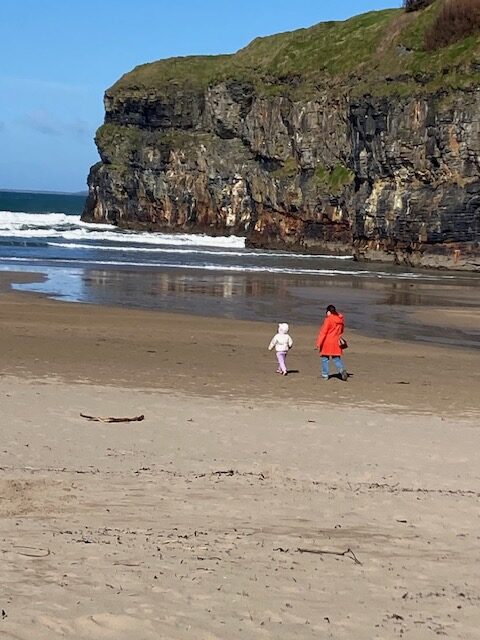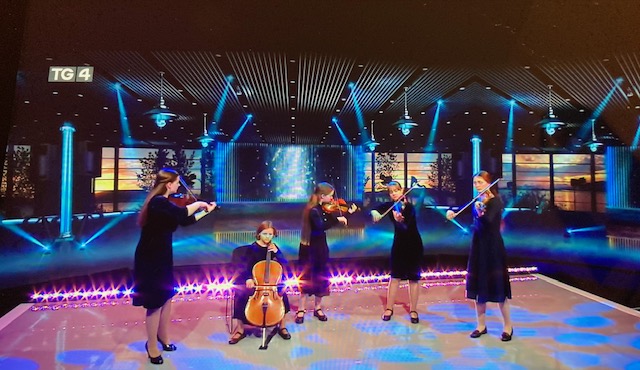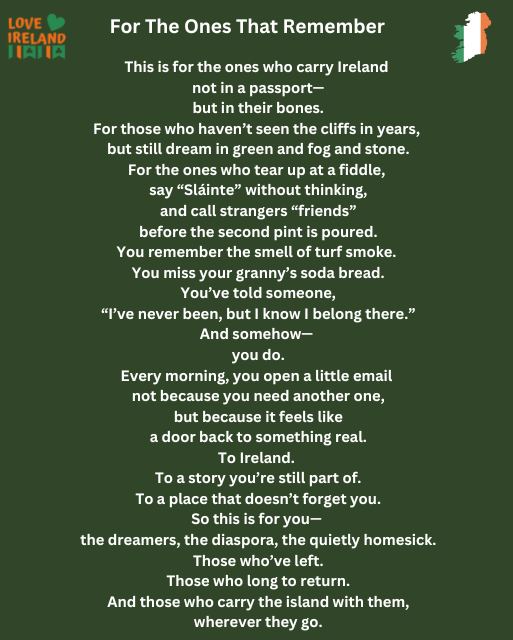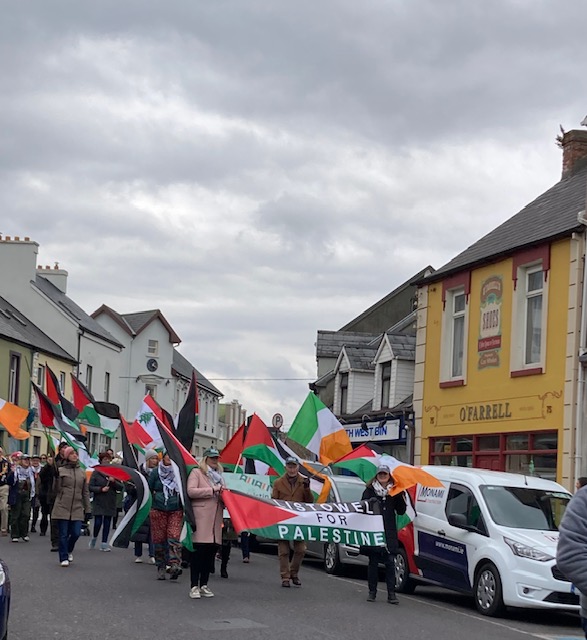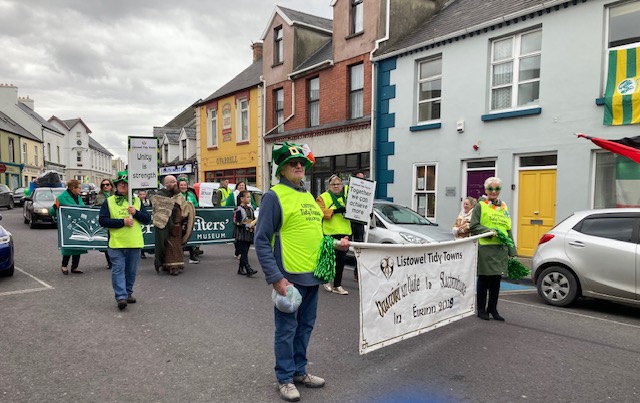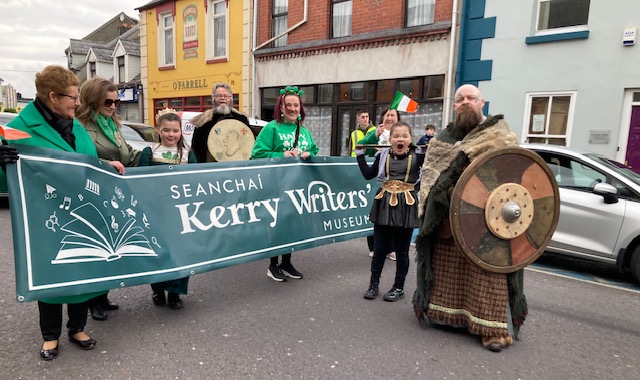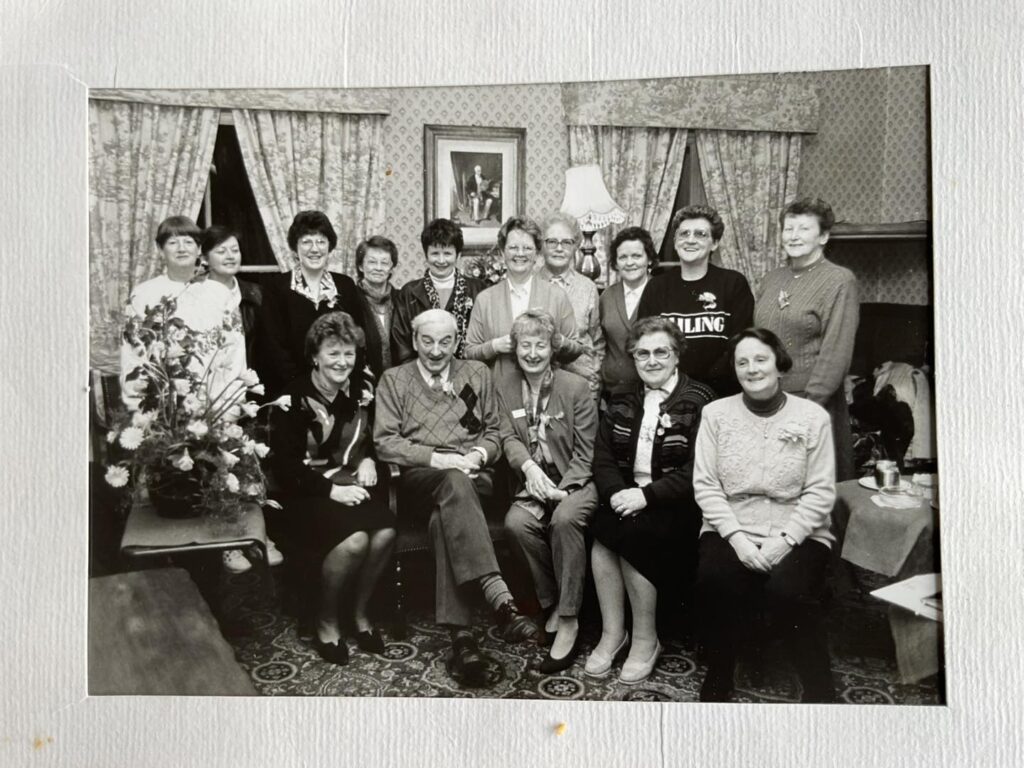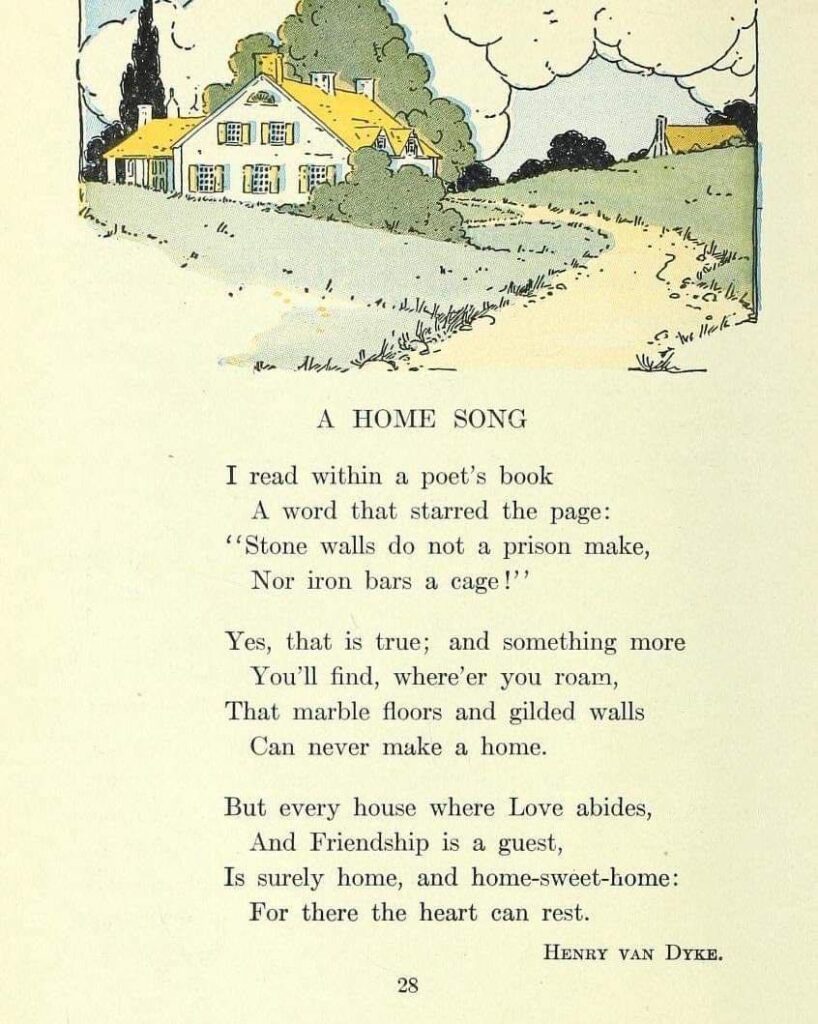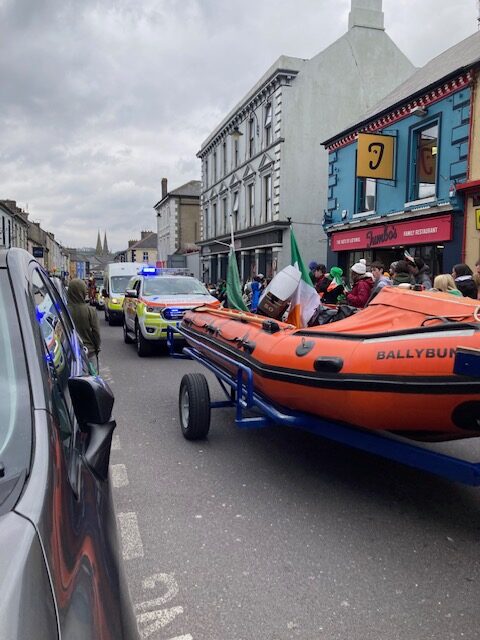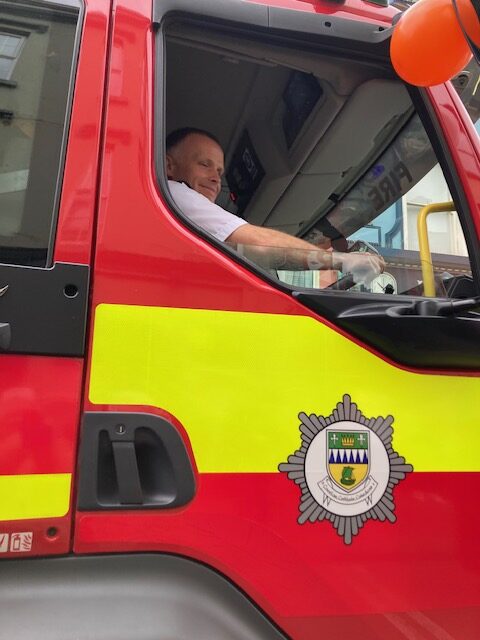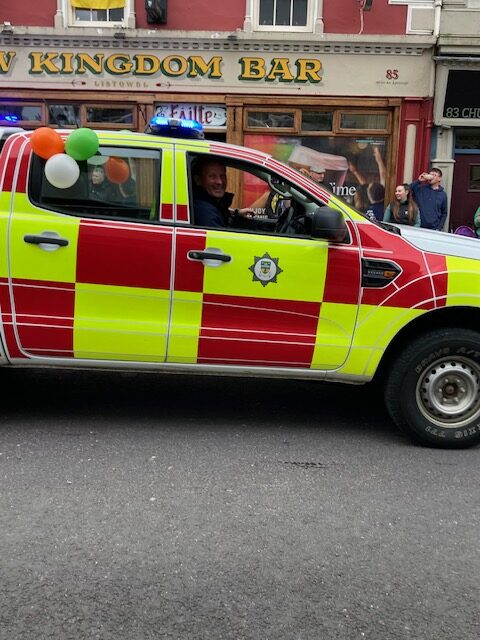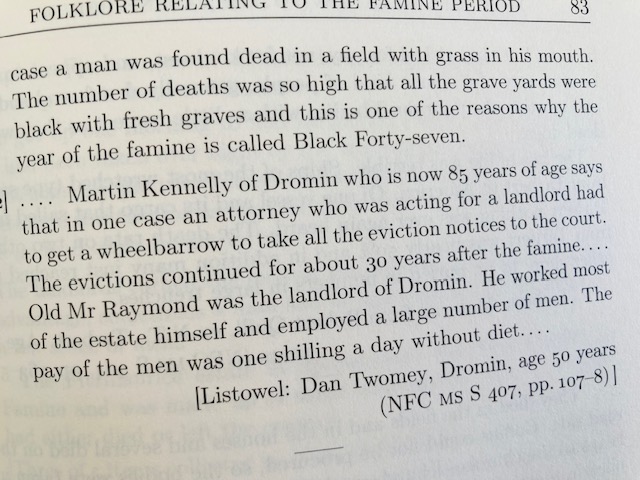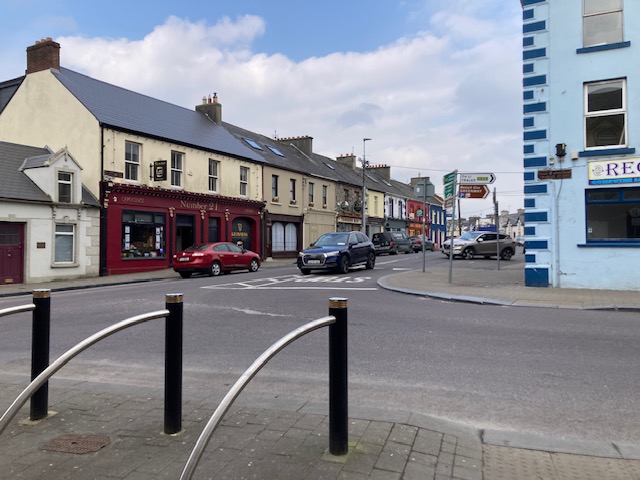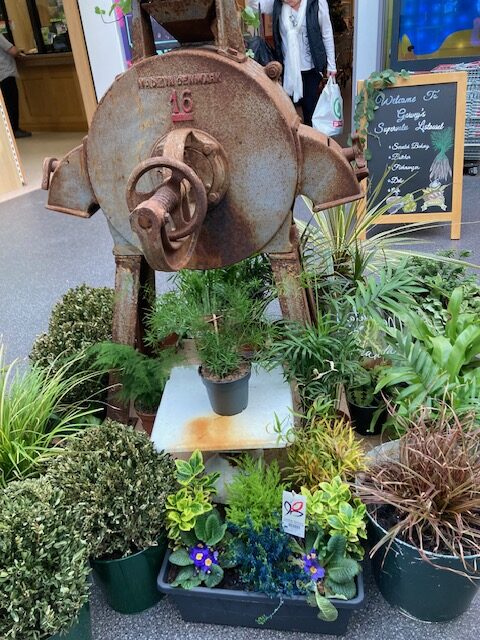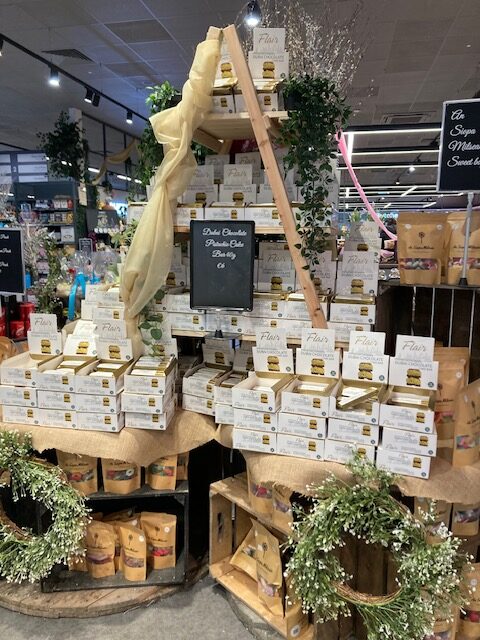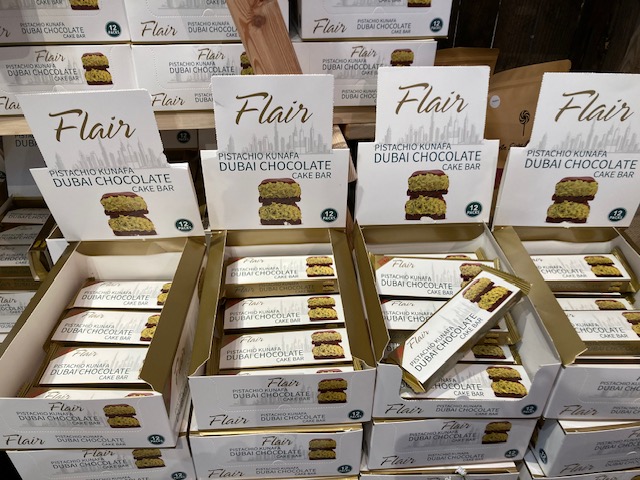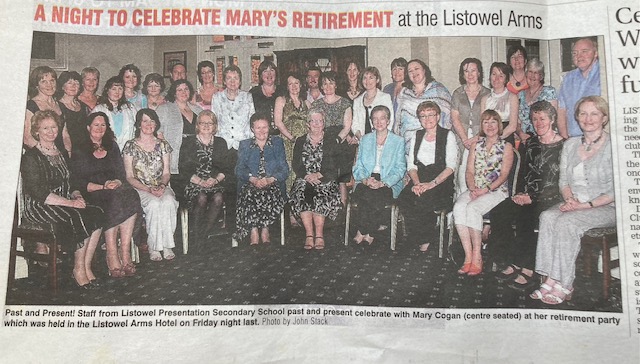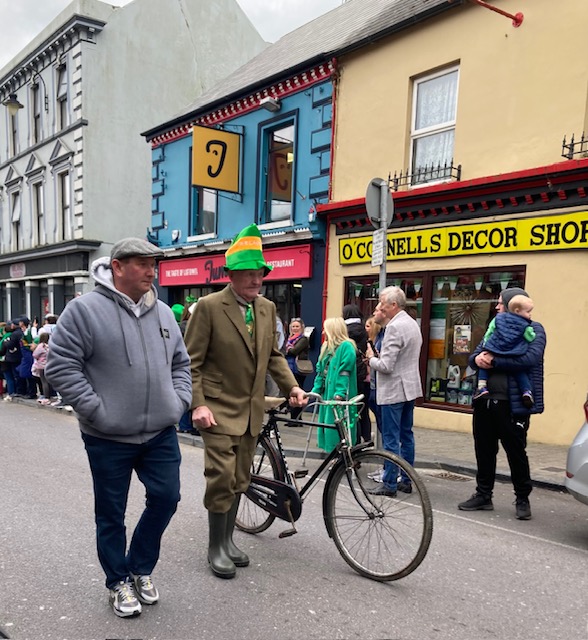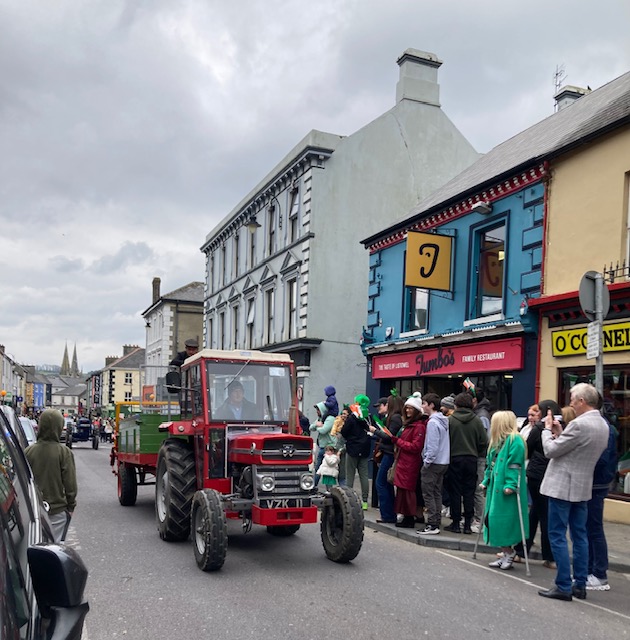
Kerry Writers’ Museum door in June 2025
<<<<<<
Exactly What it Says on the Tin

Leahy’s Corneer



In whatever language you choose, and at either end of The Square, The Square is The Square is The Square.
<<<<<<<<<<
From Schools’ Folklore
A rogue brogue maker
About fifty years ago in Listowel in addition to men making boots there was also men who used to make cheap brogues or low shoes. Every time there would be a fair in Abbeyfeale they would take an ass load of these brogoues to the fair and sell them in the fair just as people sell second hand clothes now. The best known one of those was called Johnny the Cottoner (O Connor) a brother to famous Patsy. Patsy used work hard making brogues up to the time of the fair. On that night he would be mad drunk. Most of the houses at the top of church street at this time were thatched houses. Patsy would roll home about midnight and break most of the windows up on his end of the street. He would take the road the following morning and would not come back again till things were forgotten again. These brogues were stitched by the hand but at that time the shoemakers used work by “lamplight” and often worked well after midnight.
Told to W. Keane by Mrs. Keane
<<<<<<<<<
Mural in Athea
People and horse in Jim Dunn’s extraordinary mural




<<<<<<<<
A Poem
But You Didn’t
By Merrill Glass
Remember the time you lent me your car and I dented it?
I thought you’d kill me…
But you didn’t.
Remember the time I forgot to tell you the dance was
formal, and you came in jeans?
I thought you’d hate me…
But you didn’t.
Remember the times I’d flirt with
other boys just to make you jealous, and
you were?
I thought you’d drop me…
But you didn’t.
There were plenty of things you did to put up with me,
to keep me happy, to love me, and there are
so many things I wanted to tell
you when you returned from
Vietnam…
But you didn’t.
<<<<<<<<<<<<
A Fact

<<<<<<<










